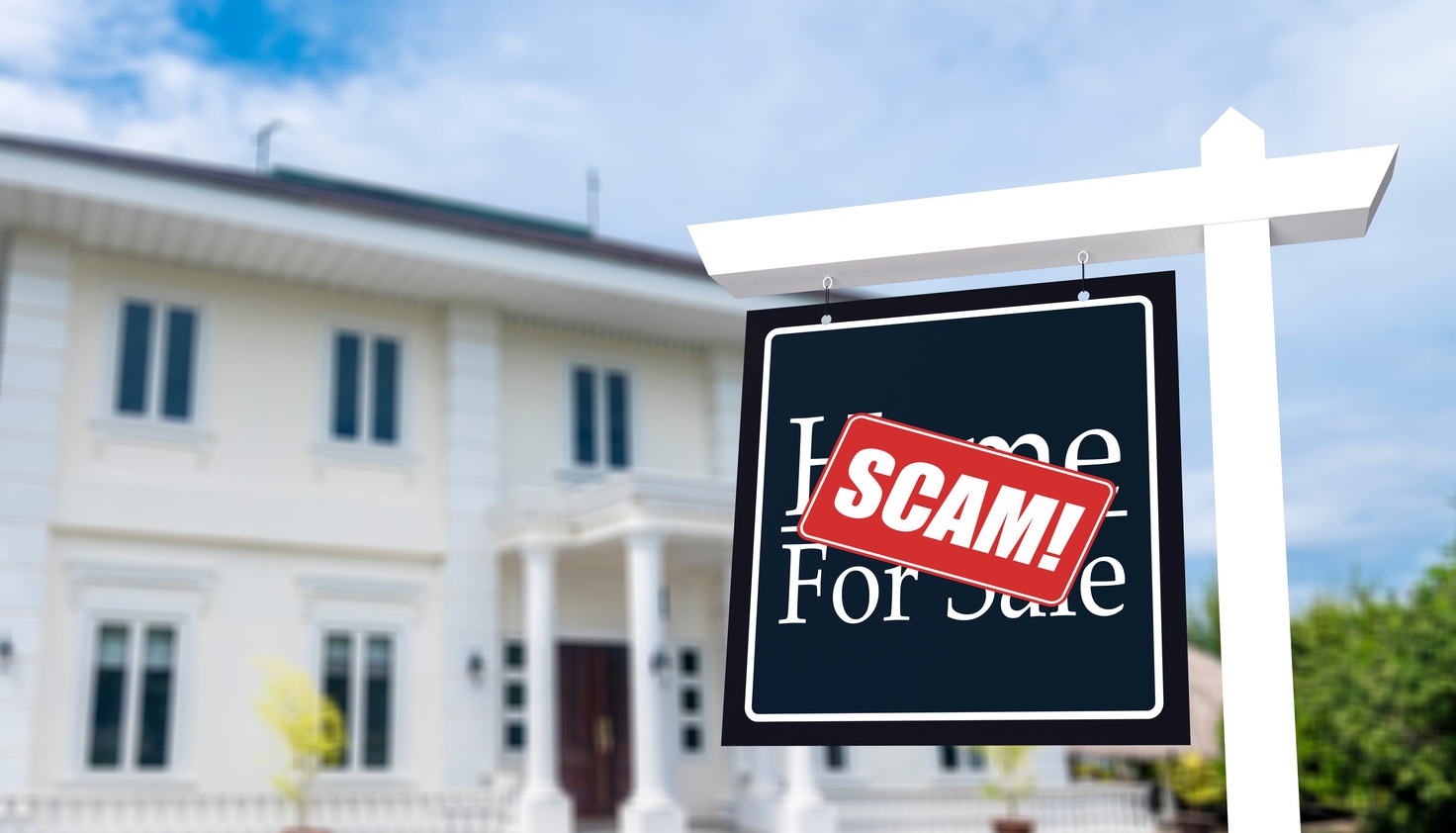Reaching out to a Realtor is a big step in the process of selling or buying a home.
How you approach that first interaction can be the key to understanding whether the agent is the right fit for you.
But the decisions around that step can feel daunting.
What’s the best way to get in touch with a real estate agent?
Should you call, email, or send a text?
And once you’ve made contact, what should you say?
Feeling a little uneasy about reaching out is completely understandable.
That’s why this guide is here to help.
We’ll cover everything you need to know about contacting a Realtor — from how to reach out, to what to say, and how to evaluate the conversation.
What’s the difference between a Realtor and a real estate agent?
The terms “Realtor” and “real estate agent” are often used interchangeably.
But there is a difference…
A real estate agent is any licensed professional who helps clients buy or sell homes.
A Realtor, on the other hand, is a licensed agent who is also a member of the National Association of REALTORS® (NAR).
This membership requires additional training, credentials, and adherence to NAR’s strict code of ethics — though some Realtors exploit loopholes that enable them to sidestep these standards.
The bottom line?
All Realtors are real estate agents, but not all agents are Realtors.
Being a Realtor reflects that someone has additional qualifications but doesn’t guarantee they’re the right professional for your needs.
Other factors, such as experience and track record, play a much bigger role in ensuring you’re reaching out to the right agent.
What to do before talking to a Realtor
Whether you’re selling a home or buying one, there are several steps you should take before getting in touch with a Realtor for the first time.
Both buyers and sellers
Doing these things before reaching out to a real estate agent will help you get the most out of your initial conversation.
Find multiple agents to speak to
Many sellers and buyers make the mistake of talking to just one Realtor.
Reaching out to two or three prospective agents gives you the chance to compare their communication styles, market expertise, and strategies.
This is a good idea even if you’re talking to a referral from a friend or family member.
If you need help identifying potential candidates, check out our guide on the best ways to find a real estate agent.
Research the agent
Taking the time to do your due diligence is critical to ensure the agent you’re considering is deserving of your time and trust.
Here are the steps to take:
- Verify their credentials. Ensure their real estate license is active and, if they claim to be a Realtor, that they’re listed in NAR’s member directory.
- Check for disciplinary actions. Use your state’s real estate commission or association to confirm there are no red flags in their professional history.
- Read online reviews. See what past clients say about their communication, professionalism, and results.
- Review their online presence. Look at their social media profiles and general online behavior for signs of professionalism or unprofessionalism.
Determine your goals
Don’t start a conversation with an agent without first clarifying your real estate goals.
Defining them up front will give you the clarity and confidence to communicate effectively in your initial discussion.
For sellers:
- Are you prioritizing a quick transaction or getting top dollar?
- What’s your timeline for selling — next month or six months from now? (Your time frame is key to determining the best time to contact a Realtor.)
- Are you planning to sell as-is, or are you open to making repairs and improvements?
For buyers:
- What type of property are you looking for (e.g., single-family home, condo, townhome)?
- What are your must-have features?
- What’s your budget and ideal price range?
Buyers
Real estate agents are more likely to prioritize buyers who demonstrate financial readiness.
Here’s how to prepare:
- Get pre-approved for a mortgage. This demonstrates your seriousness and helps agents understand what’s realistic for your budget.
- Know your financial situation. Be ready to explain where your down payment and closing costs are coming from.
While these steps aren’t required, they show you’re prepared and make it easier for an agent to prioritize working with you.
Sellers
Think about what you might need help with before reaching out to a Realtor.
- Do you need advice on pricing your home competitively?
- Are you looking for help with staging and prepping your home?
- Do you need guidance on the home selling process?
Having a clear understanding of what you need can help you determine if the agent is the right fit for you.
What to say when contacting a Realtor
Sharing key details and asking the right questions up front can save you from wasting time with the wrong agents.
Think of it as the first step in interviewing a real estate agent to determine if they’re the right fit.
Here is what you should discuss when contacting an agent to ensure a productive and insightful conversation.
What buyers should say
Focus on sharing your buying goals, asking about the agent’s expertise, and clarifying how much support you’ll need during the home buying process.
Share your circumstances
Start by explaining your situation, such as whether you’re a first-time buyer, relocating, or selling and buying locally.
Be clear about your timeline — are you aiming to move quickly, or do you need more time to find the right property?
Mention whether you’re pre-approved and working with a loan officer, or if you’re just beginning the process.
Ask key questions
Inquire about topics that showcase their expertise, communication style, and approach to working with clients like you.
- How familiar are you with the neighborhoods I’m interested in? This helps assess their local market knowledge.
- What’s your experience with buyers in my price range? Ensure they understand your financial situation and target market.
- How do you help buyers navigate multiple-offer situations? Learn about their negotiation strategies and ability to secure the best deals.
Clarify your buying needs
Clearly describe the type of property you’re looking for when speaking to a buyer’s agent.
Highlight any must-have features, such as a spacious backyard, the minimum number of bedrooms and bathrooms, or proximity to schools.
It’s also important to discuss how much guidance you’ll need during the buying process.
Do you need help finding listings? Are you unsure about the steps involved?
Shedding light on your needs will give you valuable insight into the agent’s expertise and how effectively they can assist you.
What sellers should say
Focus on providing details about your property, asking targeted questions about the agent’s experience, and clarifying the services you’ll need.
Share your circumstances
Start the conversation by sharing your situation, describing any unique circumstances, and outlining your home selling goals.
Explain why you’re selling your home. Are you relocating? Downsizing? Selling an inherited property?
Be clear about your sales preferences and timeline.
Listen for signs they’ve dealt with similar sellers and scenarios — and that they know how to handle them professionally.
Probing for evidence of their real estate expertise will help you quickly decide if the conversation should go any further.
Ask key questions
Asking the right questions during your initial conversation is crucial to deciding whether to move forward and schedule a face-to-face meeting.
Here are a few critical questions sellers should ask a real estate agent.
- How familiar are you with selling homes in my neighborhood? Their answer will tell you about the Realtor’s experience in your local market, which is important for pricing your home and marketing your listing.
- How would you handle it if you had a buyer interested in my home? Their response can indicate whether they’re open to acting as a dual agent, representing both the buyer and seller in the same transaction (a major conflict of interest). Avoiding a listing agent with a track record of dual representation is one of the most important steps in choosing the right Realtor.
- How often do you communicate with your clients, and what’s your preferred method? Their answer will reveal how proactive they are in keeping you informed throughout the selling process. Whether they prefer phone calls, emails, or text messages, it’s important to ensure their communication style matches your expectations
Clarify your selling needs
The first time you talk to a real estate agent is a crucial opportunity to clarify what you need help with.
Do you plan to prepare your home for the market yourself –– or will you need recommendations for service professionals?
Will you be occupying the property while it’s listed and need to know how they would accommodate showings and open houses?
Or perhaps your home will be vacant and you’re looking for an agent who can handle everything from start to finish?
This conversation is your chance to clearly define the services you expect from a Realtor and ensure their approach aligns with your needs.
It will also help you decide if you’re ready to schedule your first meeting with a realtor.
How to reach out to a Realtor
There are several ways to reach out to a Realtor for the first time.
The best option really depends on your comfort level and what you hope to achieve.
Let’s explore some of the most effective ways to contact a real estate agent and when each method might work best for you.
Phone call
Calling a Realtor is a direct and personal way to make initial contact.
It allows for real-time interaction, giving you insight into their tone and professionalism without the chance for overly polished answers.
But you may not dive into all the details on the first call.
You’ll likely need to leave a voicemail or speak with an assistant to schedule a more in-depth phone interview — both common practices when contacting a Realtor.
Phone calls are ideal if you’re comfortable having a direct conversation and prefer instant feedback.
Sending an email to a real estate agent allows for a more professional and detail-oriented conversation.
And it gives you time to craft precisely what you want to say.
Emailing is ideal if you feel intimidated by direct interaction with a prospective Realtor or want to be sure you include key home details and questions for clarity.
Here are a few tips for crafting a professional email to a real estate agent:
- Start with a clear subject line that highlights your real estate inquiry, such as “Looking to sell my home in X neighborhood.”
- Address them by name and introduce yourself.
- Concisely describe your goals and explain that you’d like to learn more about how they’d approach working together.
- Ask them if they have room for new clients right now and if they’d be open to further conversation over email.
Text
Texting is an easy, low-pressure way to introduce yourself and start the conversation.
It’s a convenient option if you’re looking for a quick response without committing to a detailed discussion right away.
Keep the message simple and to the point after introducing yourself.
Here are a few examples of what you might include:
- Do you have the capacity to work with new clients?
- I’m looking for help selling my home — are you available to chat?
- Do you have time for a quick call to discuss my situation?
These types of messages set the tone for further communication while giving the agent a chance to confirm their availability.
Social media
Reaching out to a Realtor on social media is another informal way to make contact.
Platforms like Facebook, Instagram, or LinkedIn work well for casual conversations and quick questions, much like texting.
Social media also gives you insight into the agent’s online presence.
You can see how they interact in discussions –– whether they respond promptly and professionally –– and how they showcase their real estate marketing on their pages.
This approach is ideal if you’re active on social media and prefer a more casual, approachable method of communication.
Agent-matching services
Not thrilled with any of these options?
You might want to consider an agent-matching service.
Online platforms offer an efficient way to connect with a real estate agent –– without the hassle of researching multiple agents on your own.
But not all agent-matching services are created equal.
Some allow agents to pay for recommendations, while others rely solely on basic experience.
At SoldNest, our no-cost service uses strict agent vetting requirements to help home sellers find a Realtor through a curated platform.
Contacting an agent through a matching platform can ease the anxiety of figuring out how to reach out.
The agents can take the lead and initiate the conversation for you.
Just be sure to choose a service that prioritizes thorough vetting and transparency.
What to focus on during your initial conversation
There’s a lot to take in the first time you talk to a Realtor.
But the most important factors to notice are more nuanced.
Here are three key aspects to be mindful of during your interaction with a seller’s or buyer’s agent.
How the Realtor communicates with you
Strong communication creates a good first impression and sets the tone for a good working relationship.
So pay attention to the Realtor’s communication style and whether it meets your expectations.
Are they responsive? Especially if you reach out over email, text, or social media — do they reply promptly?
Are their responses clear and informative, or do they avoid direct answers?
Do they convey professionalism and a deep knowledge of your local real estate market?
The questions they ask about your needs
Great agents will ask you lots of specific questions about your goals, home details, and expectations.
A good real estate agent will ask questions like:
- What do you need help with?
- What’s your timeline?
- Do you plan to move out before listing?
- What makes you anxious about selling or buying a home?
These and other insightful inquiries show that they care about your unique needs.
An agent with this kind of inquisitiveness is interested in providing a tailored real estate experience.
If the agent is a good listener
An attentive real estate agent will listen to your needs and goals just as much as — if not more than — they talk.
But how can you tell if a Realtor is truly paying attention?
Look for the classic signs of active listening:
- They acknowledge your concerns and respond thoughtfully to your questions.
- They ask follow-up questions that show they’re genuinely engaged.
- They summarize your concerns in their own words to confirm understanding.
Consider it a major red flag if they seem distracted, provide vague responses, or rely on canned answers.
Next steps
Initiating contact with a Realtor is an important first step in finding the right partner for a successful real estate transaction.
To make the most of it, you’ll need a clear plan for what to say, what you hope to learn, and how you want to get in touch.
If you’re selling and feeling a bit overwhelmed about reaching out, we can help.
Our no-cost service simplifies the process by pre-qualifying agents to ensure they’re the right match for your unique needs.
Learn more about how our service works and gain confidence in connecting with a top-performing real estate agent.





